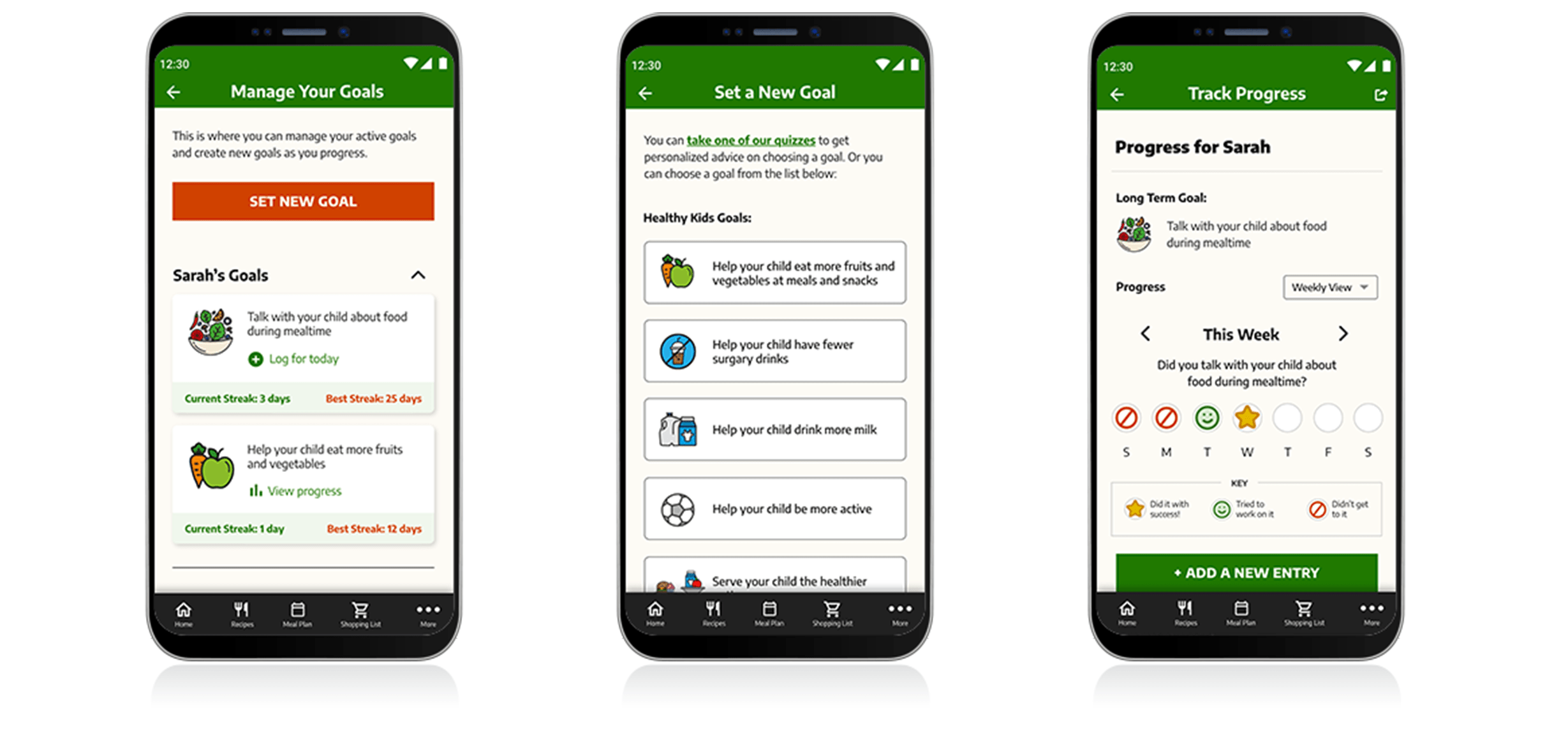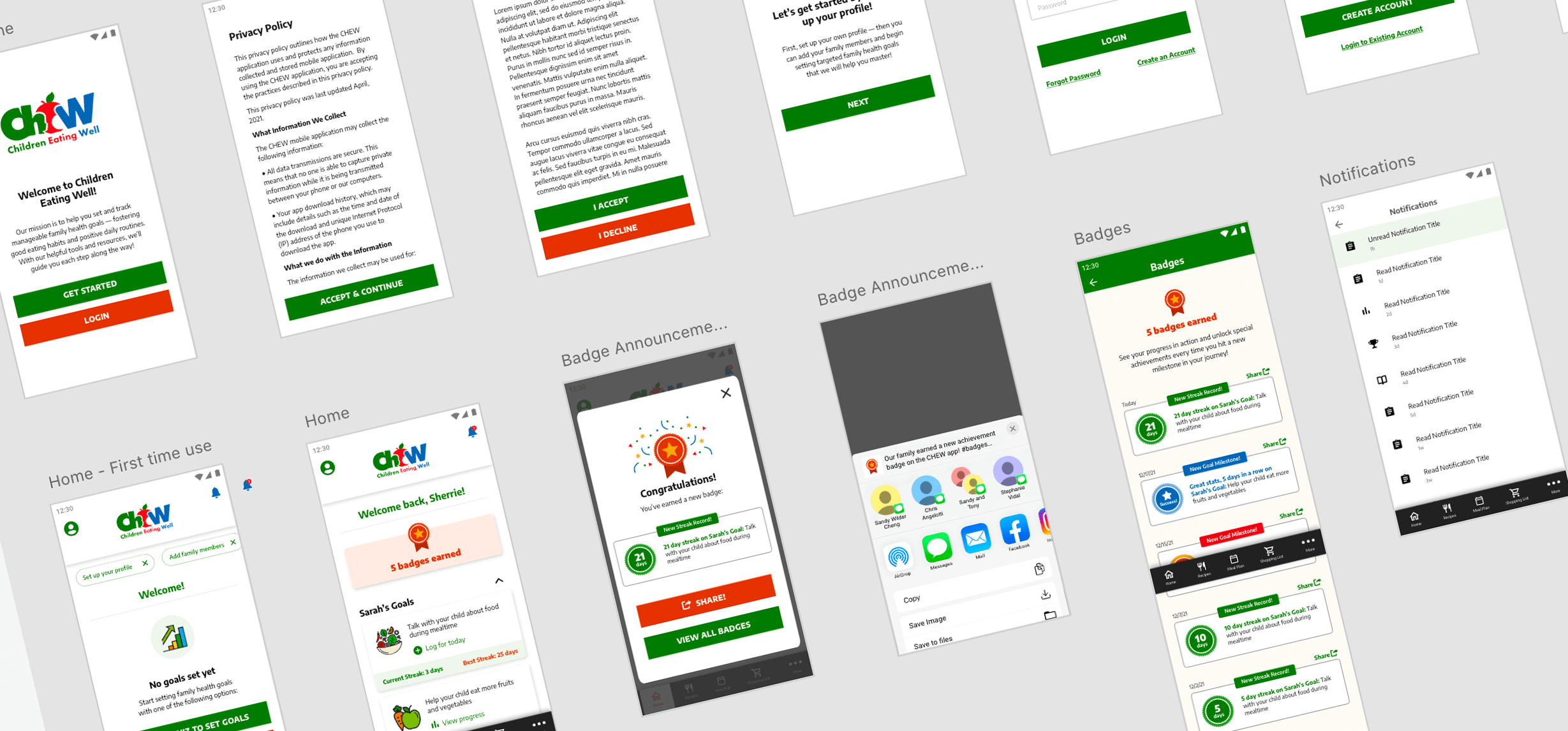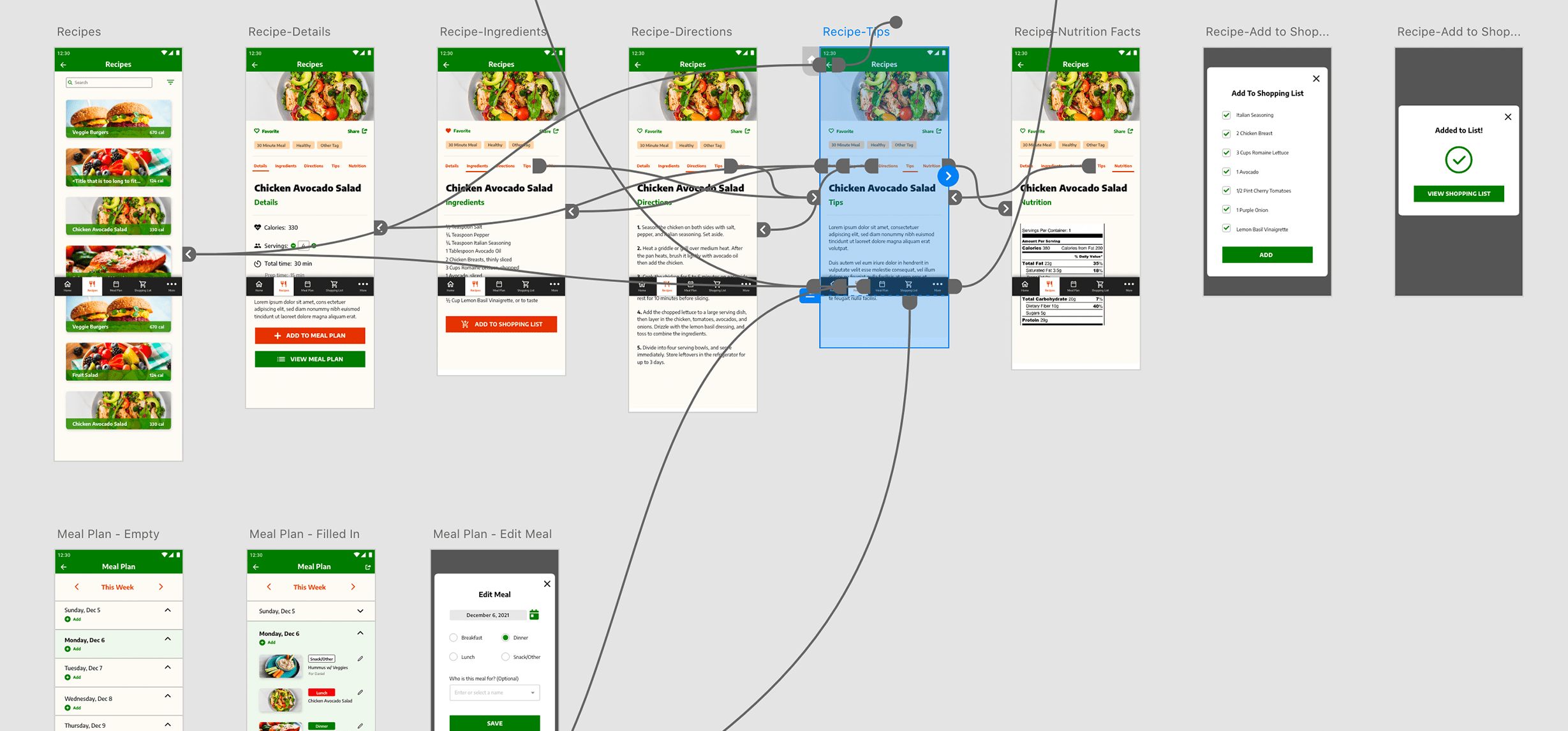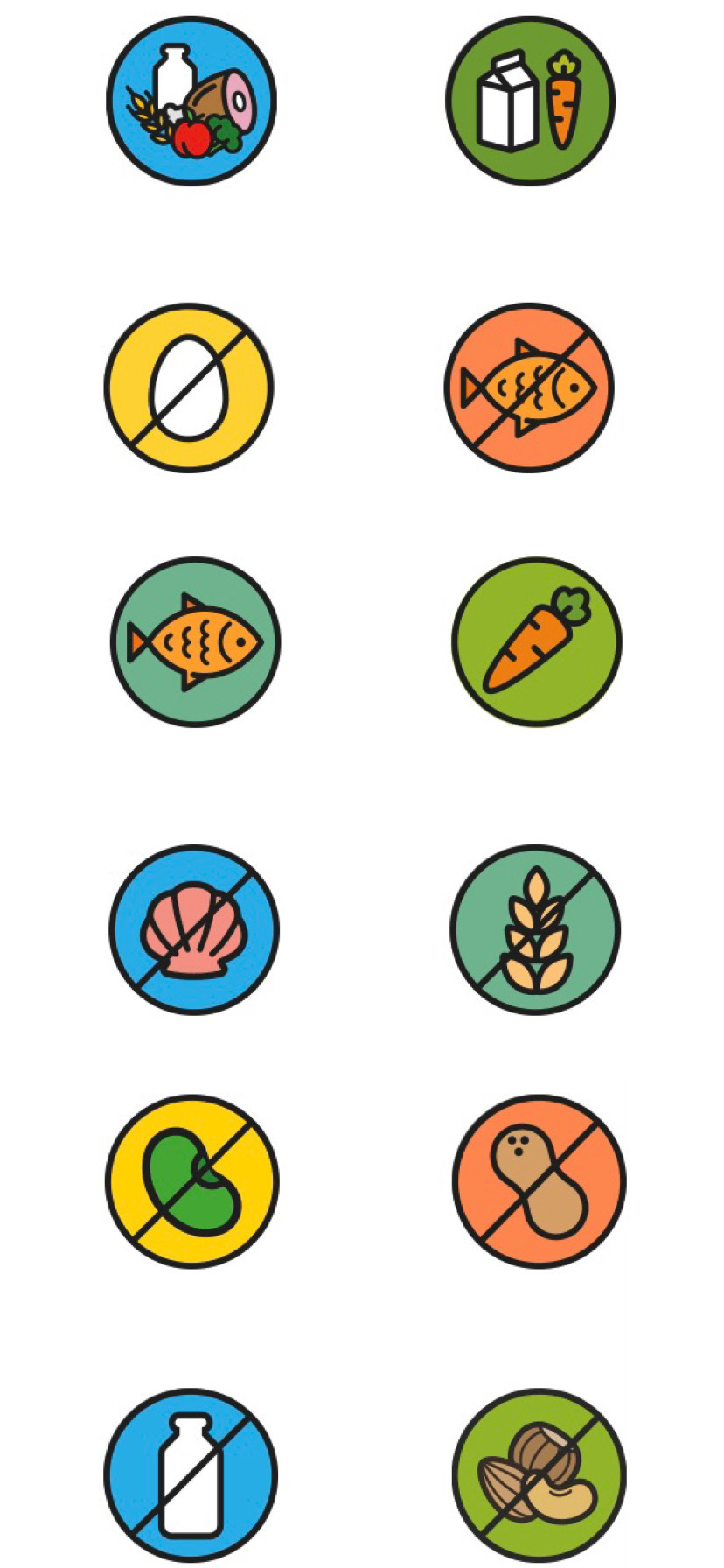Strategy
The plan for the aptly named “CHEW” (Children Eating Well) mobile app was to include resources such as searchable recipes, self-assessment quizzes, meal planning, goal tracking and more to help busy families create healthier eating habits.
Our Sanger & Eby team started off by reviewing relevant background materials and existing research to inform our user experience (UX) recommendations. We then mapped out a new information architecture for the app and began designing a user interface (UI).
To conduct effective usability testing, we built a clickable prototype that was utilized in online user testing. From our testing, we compiled a report of the results and recommendations to implement prior to handing off the final design. Once coded, we conducted quality assurance testing and proofing of the app to ensure that the final product followed the design as intended.
Finally, we oversaw a soft-launch of the app during which time we conducted more in-depth, live usability testing to generate more user feedback.
Results
The University of Kentucky Department of Behavioral Sciences has submitted for an extension of their grant to evaluate the impact of the CHEW app on increasing the use of WIC benefits, improving diet quality and reducing other obesity risk factors among preschool-aged children from limited-resource families. They plan to roll it out first in WIC clinics across the state of Kentucky, reaching over 70,000 families with 2-4 year old children. The long-term goal of the department is to adapt the CHEW app for WIC programs to use in other states across the country.




